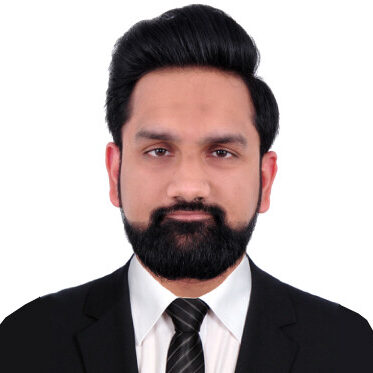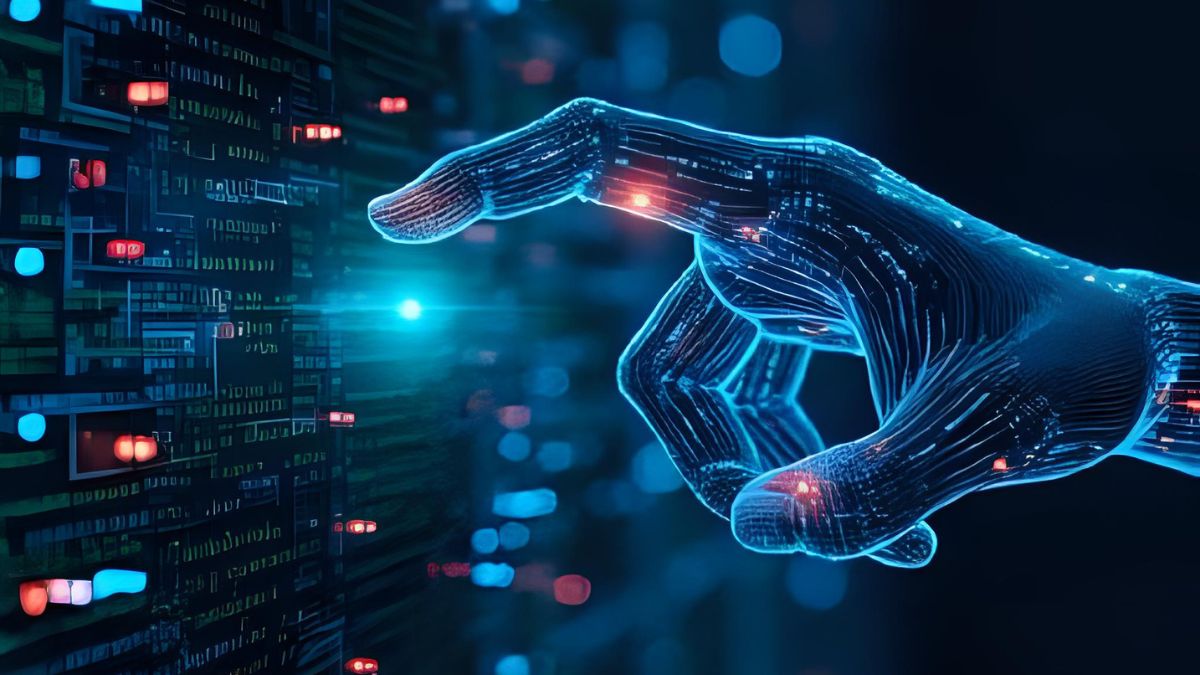He’s one of the Middle East’s leading voices in cyber security — a globally recognised keynote speaker, academic, and consultant who has spent his career safeguarding governments and Fortune 500 companies from emerging digital threats. Shaikh Muhammad Adeel brings a rare blend of technical expertise and executive strategy to the fast-evolving world of cyber defence.
A doctorate researcher and industry authority on artificial intelligence in cyber security, Shaikh has built a reputation for bridging complex systems with practical resilience. His work focuses on transforming reactive security models into proactive, intelligence-driven frameworks that protect organisations in an age where human error and automation coexist.
In this exclusive interview with the Cyber Security Speakers Agency, Shaikh explores the future of AI-powered cyber defence, the growing risks of remote work, and why true resilience starts with culture — not code.
Q: Artificial intelligence is rapidly reshaping cyber defences. How can business leaders practically leverage AI to strengthen their security operations?
Shaikh Muhammad Adeel: “Basically, you know, businesses should have some type of real-time threat detection mechanisms. Again, that’s possible all thanks to AI-driven analytics.
“Why? Because there is a term I’m sure you guys have heard about — zero day. So, zero day is basically an attack which is not available or somebody has just made that attack today only, that worm or that virus or that functionality. So, no one in the world or no cyber security solution knows about it. If nobody knows about it, the behaviour-based or detection-based solutions will be unable to detect it.
“So, if you are using AI-driven analytics or real-time threat detection using AI, AI can predict or understand that if some behaviour is leading to something dangerous, at the spot it will highlight and it will stop it. That’s why real-time threat detection is very much important using AI analytics. There are many solutions out there which are claiming that or have this in place by default.
“Next is automated incident responses. That is basically to reduce the detection-to-remediation time. It will save you that time in incident response if something bad already happens. So, you can automate these incidents again by using AI in your security operations journey.
“The other can be to automate your patch management, your compliance reporting — if you are under some compliance like PCI DSS, GDPR, or, if you are in this region, you have NISSA. In Saudi Arabia, you have NCACC, DCC, and all. So, whatever the emerging threats or compliance requirements are, that is also possible with AI, especially for security operations.”
Q: The shift to remote and hybrid work has permanently changed cyber risk. What vulnerabilities does this introduce, and how can organisations close those gaps effectively?
Shaikh Muhammad Adeel: “Oh, great question. Basically, remote users are a big risk for the organisation, and you know, especially during COVID time, organisations were really sceptical about how to solve this issue.
“Why? Because they can join from anywhere — they can join from a beach, they can join from a Starbucks, you know, using public Wi-Fi. They can join from their home networks or personal devices, and devices also vary. It’s not always the company laptop or company resources or assets — it can be anything.
“So, it’s like, you know, a mess in that area. Then there are remote phishing attacks. Phishing remotely is very easy because, again, you’re not sitting in the office. For example, if you’re sitting in the CEO’s office, you know this phishing email is not from the CEO because the CEO is in front of you. But if you’re working remotely, the chances are increased.
“Then there are physical security controls — now there are none, because you are working from anywhere. So, some of the mitigation practices, or how we can mitigate these risks, include: enforcing multi-factor authentication and secure VPN, which is really important. Secondly, you have to have solutions like Keystyle because that will stop the lateral movement.
“Force came up with a report saying that around 90% of ransomware attacks start from lateral movement, so you have to stop that. Attackers, the adversaries, are using your computer as collateral before moving to sensitive systems, so it’s a big risk. You have to have solutions to block lateral movements.
“Then your endpoint security and MDM solutions — mobile device management — are really important. The biggest of all, which I mentioned at the start also, is security awareness and training, because you cannot patch a human. You have to train them again and again, what to click, what not to click.
“Now, you know, it’s really difficult. For example, if it’s an HR lady, her job is to open CVs. But what if one PDF is not a CV — it’s a backdoor or something? The person intentionally clicked it. They always come from public domains like Hotmail or Gmail. So, you cannot train your employee to only click from company email addresses, not personal ones, because that’s her job.
“So, security awareness is really important, and you have to have a zero-trust security model to enforce least privilege access.”
Q: Many companies still operate with a reactive security mindset. What steps can CISOs and IT leaders take to build a proactive, AI-ready defence model?
Shaikh Muhammad Adeel: “This is really required, especially in 2025, when there are so many AI-based threats. So, you have to shift from reactive to proactive. You cannot say that everything is going well, and you’ll buy security if something goes bad. This approach will lead somewhere disastrous.
“You have to have continuous monitoring and AI-driven threat intelligence — that is really important. Then you have to have zero-trust security models, which I mentioned in my last point also. You must conduct regular vulnerability assessments and penetration testing, which are really important.
“It’s like you already have a layer of defences, but now you’re checking — doubling down on those layers to see how strong they are, how protective you are. That’s what vulnerability assessments and penetration testing do — they check the boundaries you’ve already created. These need to be regular — every quarter, twice a year, or even monthly, depending on your organisation.
“Then you have to automate incident response workflows so you can have faster threat mitigations. Lastly, you have to build a security-first culture again with training, consultation, and simulations.
“Simulations are like sending a test email and seeing who clicks and who doesn’t. For example, an email saying your Amazon box has arrived or click here to win a £50 or £100 voucher — these are simulation attacks. We try to see who clicks, and surprisingly, almost everybody does. So, we have to emphasise more on cyber security awareness and training.”
Q: Finally, if you could leave business leaders with one takeaway about cyber resilience in the AI era, what would it be?
Shaikh Muhammad Adeel: “It’s difficult to wrap it up in one word, but I would say that cyber security is not a one-time effort. It’s a continuous process. Please take it in that way — there is no destination, enjoy the journey.

“You have to move really fast because cyber security is something that’s not getting older. People ask me why cyber security never fades away like other trends. The reason is that there are new attack vectors every now and then — we have Web 3.0, blockchain, AI, and quantum computing.
“For each, we need new security layers — blockchain security, AI security, quantum-proof encryption for the future. So, it’s a continuous process, not a one-time effort. Please don’t take it as wasting money; it’s an investment that saves you and provides complete visibility.
“So, in short, I would repeat — cyber security is not a one-time effort, it’s a continuous process.”
This exclusive interview with Shaikh Muhammad Adeel was conducted by Mark Matthews of The Motivational Speakers Agency.


